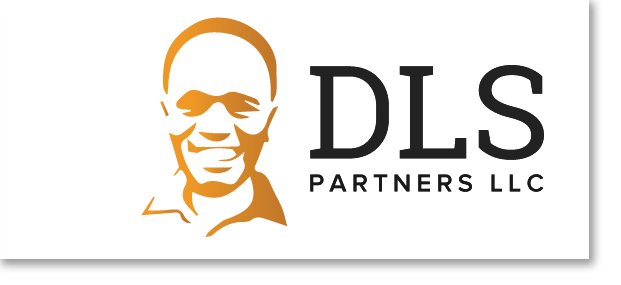This post is about a topic I fear most readers care about very sincerely, but most neglect because so little value is placed on it in today’s overachievement oriented world. I believe that the best investment we can make is in relationships! Who doesn’t want to experience harmony, collaboration, affection, kindness, respect, support at work, school and home? Perhaps only those with little to no emotional intelligencemay not be able to answer in the affirmative; in fact, one of the main reasons people report to work is because of the social element.
Some may push back on my assertion with arguments like, work is about work and not interpersonal relationships. It turns out we are profoundly social creatures–more than we know. In Social, renowned psychologist Matthew Lieberman explores groundbreaking research in social neuroscience revealing that our need to connect with other people is even more fundamental, more basic, than our need for food or shelter.
I have had my own share of interpersonal relationship challenges this year and have found that to successfully navigate the complexity of relationships at home and work, and experience thriving, life giving relationships, it requires quite an elaborate network to make this happen. Gathering from the world of psychology, coaches and mentors, management literature, as well a spirituality, I’d like to recommend the following approaches to making the most of your best investment.
Invest in A Personal Board of Directors
In an article for Harvard Business Review, Priscilla Claman defines this unique set as “… a group of people you consult regularly to get advice and feedback.” Claman adds, “There’s no need to hold meetings or even inform each person of his or her status as a board member—but you do need to select the right people and stay in touch.” My current board of directors are eight individuals who all speak into my career, personal, and spiritual life. Five of them I meet with individually on a monthly basis, the other three meet as a group on a bi-weekly basis. As I mentioned earlier, one of the challenges I faced just this month was losing one of these board members to cancer. This was very sudden and has had a significant impact on me personally. The adjacent picture captures the warmth of the friendship, but our meetings were characterized by a commitment to seeking advice and feedback.
Invest in Developing Diverse Relationships
One of the best examples that comes to mind is Nelson Mandela as the newly elected President of South Africa, befriending the captain of the South African national rugby team, known as the Springboks. The Springboks were a symbol of apartheid to black South Africans and Nelson Mandela who had spent 27 years in jail for fighting against apartheid. He somehow managed to overlook all of that because of his Big Hairy Audacious Goal (BHAG), that if South Africa could win the 1995 Rugby World Cup, it would bring together a nation divided by apartheid. A new constitution, which enfranchised blacks and other racial groups, took effect in 1994, and elections that year led to a coalition government with a nonwhite majority, marking the official end of the apartheid system.
The beauty of this diverse and unexpected relationship is proof as I have argued for what I call cultural empathy, that “authentic diversity happens one relationship at a time.” Pienaar told The Telegraph. “As we stood there he turned to me and said with that incredible, beautiful smile of his: ‘Thank you for what you have done for South Africa.’ I couldn’t believe he had said that. With some people you meet, they are just
courteous. Some you meet are politicking. With Madiba, it was always genuine. We had met a year before, in 1994. He had just been elected president and I had just been made Springbok captain. We had tea together. Pienaar and his wife remained close to Mandela and years later asked him to be godfather to their two sons, Jean and Stephane.
Another area of diversity that I am committed to is gender equality and advocating for women who are leaders (because of gender inequality). I also provide support in my coaching practice to women who are leaders and executives. I actively participate and partner with organizations like https://www.missioalliance.org/ and http://tedxpasadena.org/ who’s purpose is to promote gender equality and egalitarian leadership.
Frances Hesselbein whom Peter Drucker called the …greatest leader America reminds us on the topic of women in leadership, “We never refer to ourselves as ‘female, or women leaders.” We are not a category. We are leaders who are women. As leaders who are women we begin by acknowledging that we bring a special dimension to the work of our organization.”
Invest in Personal and Professional Development
Well, it goes without saying that an executive coach would give this advice! I think I’m in good company if not just for these two men. Tony Robbins and Warren Buffet attribute their success to making an investment in their professional and personal development. When Robbins was 17 and earning $40 a week, he spent $35 for a three-hour seminar with personal development coach Jim Rohn. Buffett learned a similar lesson. He was terrified of public speaking when he was young. To force himself to face his fears, at age 20, Buffett signed up for a public speaking course with the Dale Carnegie institute.
I am always surprised when I meet a business leader who says they wish their organization believed in either executive coaching or leadership development. This investment is a matter of strategic leadership and long range planning. An organization or board of directors that doesn’t understand the impact of leadership coaching must not understand effective leadership. They may understand the monthly financials, but they cannot understand the importance of a healthy organization being led by healthy leadership team. Peter Drucker, the man who invented management theory, put great currency in listening, asking questions and letting natural patterns emerge from the answers. Boards of directors who approve budgets for executive and leadership training must know that the organization’s leadership should be asking questions like; How effective is our management team? What is the relationship between management and the culture it seeks to direct? How is the business organized, and how can managers use people’s strengths more effectively?
When you invest in your own personal and professional development, you will see every relationship around your improve. Your level of engagement for work and life can catapult you to new opportunities when you know yourself well.
Invest In Your Colleagues
Employees report that when they have friends at work, their job is more fun, enjoyable, worthwhile, and satisfying. Gallup found that close work friendships boost employee satisfaction by 50% and people with a best friend at work are seven times more likely to engage fully in their work. The development of trusting relationships is a significant emotional compensation for employees in today’s marketplace. Thus, it is easy to understand why it is such a key trait of retention, and is one of the Q12 key discoveries from a multiyear research effort by The Gallup Organization.
AtDLS PARTNERS LLC we’ve developed a model to operationalize Gallup’s ‘best friend at work’ concept. We call in the Leadership Buddy SystemTM. – A leadership self-awareness and performance effectiveness tool. It was designed to provide psychological safety or a “safe-space” for leaders to discuss, share, vent, solicit input on issues and matters they are faced with on a daily basis. Having a designated individual within the organization as a sounding board, confidant, and accountability partner, enables a leader to develop and grow exponentially, much like what we see with individual coaching. (It is not expected that buddies can provide “executive coaching,” however, buddies can provide real-time feedback on specific issues.)
I realize that much of what I’ve said, even though backed by the latest research and is relatively intuitive, is actually quite counter-cultural. Most of us don’t have our own personal board of directors, enjoy diverse relationships, invest significantly in our own personal and professional development, and experience strong relationships with our co-workers. If you are willing try at least one of these options, you will experience a greater level of meaning at work and beyond. In the words of words of the 1st century Roman philosopher, Marcus Tullius Cicero, “ All I can do is to urge you to put friendship ahead of all other human concerns, for there is nothing so suited to man’s nature, nothing that can mean so much to him, whether in good times or in bad… I am inclined to think that with the exception of wisdom, the gods have given nothing finer to men (and women) than this.”


